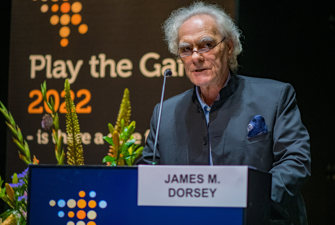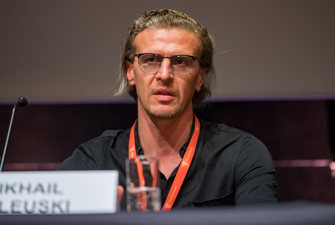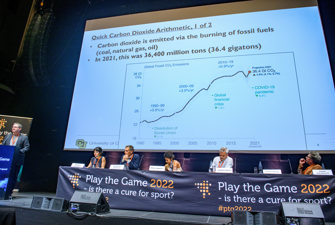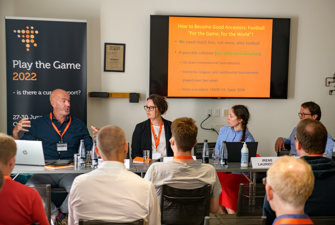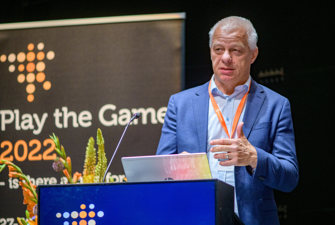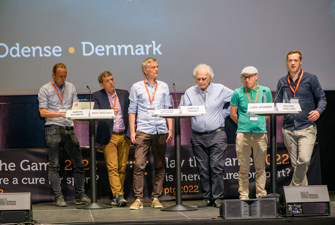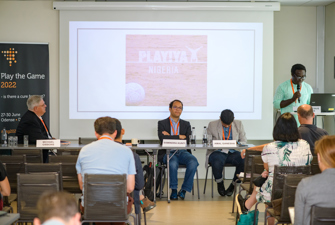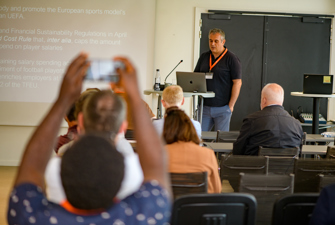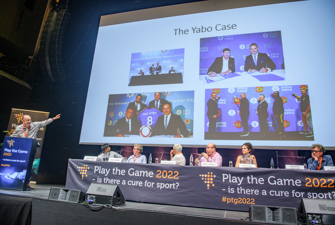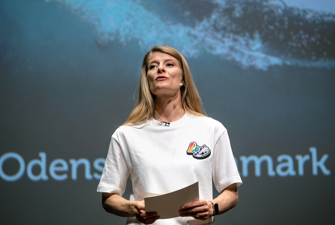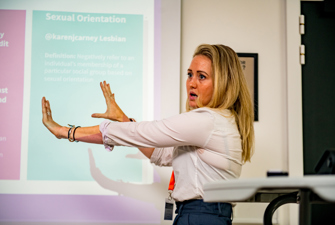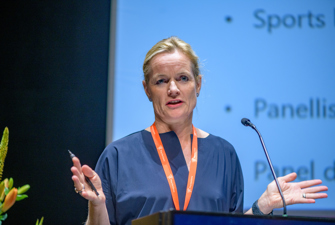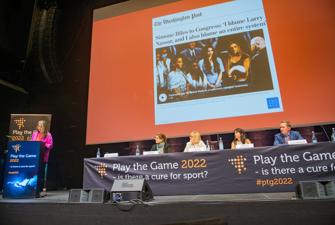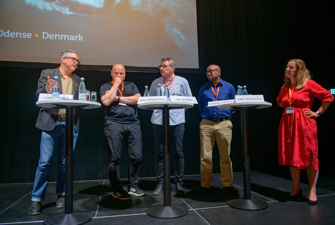Russian sanctions unlikely to herald a new era of accountability
Sport’s governing bodies are queuing up to exclude Russian teams and athletes from competitions. But that does not necessarily mean that sport governing bodies will sanction other authoritarian regimes, critics argued in a Play the Game session.
Days after the closing ceremony of the 2022 Winter Olympics in Beijing, Russian tanks began to roll over the border into Ukraine. Shortly afterwards, Russian athletes and teams were being excluded from basketball, soccer, hockey, tennis, and many other elite sports competitions. At the same time, global sports federations banned all competitions scheduled to take place on Russian territory. For most reform-minded observers, the action of sports governing bodies was unprecedented and welcomed.
“Sport has shown its capacity to be in full solidarity,” said Francesco Ricci Bitti, president of the Association of Summer Olympic International Federations.
“The IOC supports the tough sanctions against Russian and Belarusian sports organisations.”
The swift, wide-reaching sanctions were imposed partly due to Russia’s breach of the Olympic Charter, Ricci Bitti said, which compels participating nations not to go to war during the Games. As the invasion took place between the closing ceremony and the start of the Paralympics, he said, Russia was in clear breach of this commitment.
While reform-minded observers welcomed the IOC’s tough stance, others asked why such sweeping sanctions had been reserved for Russia in 2022. At the same time, the critics pointed out, sport’s governing bodies’ engagement with other authoritarian regimes is unaffected. Furthermore, why wasn’t Russia subject to similar sanctions following its invasion of Crimea, which occurred shortly after the conclusion of the 2014 Sochi Winter Games?
“Sport doesn’t take place in a vacuum,” said Danish National Olympic Committee president Hans Natorp.
“We need to be at the table, and we need to choose our battles. Not all countries are established democracies that think the same way we do. If we don’t occupy a seat, someone else will.”
It is time to reflect on sport’s role as an enabler of nationalism
While welcoming the sanctions imposed on Russia, many Play the Game attendees were not convinced that they will herald a new era of accountability for other aggressive or corrupt regimes.
“The Olympic Movement has until recently let its self-proclaimed peace-keeping role overrule all other considerations,” argued Play the Game’s international director Jens Sejer Andersen in his opening speech at the conference.
“It would be unfair to claim that international sport could have prevented Russia’s aggression in Ukraine, but it is timely to reflect about sport’s role as an enabler of nationalism and militarism in Russia and elsewhere.”
“By and large sport is still a haven,” he added. “But not for democracy. Elite sport has displayed an endless appetite for the unbelievable fortunes that oil- and gas-rich states can offer.”
